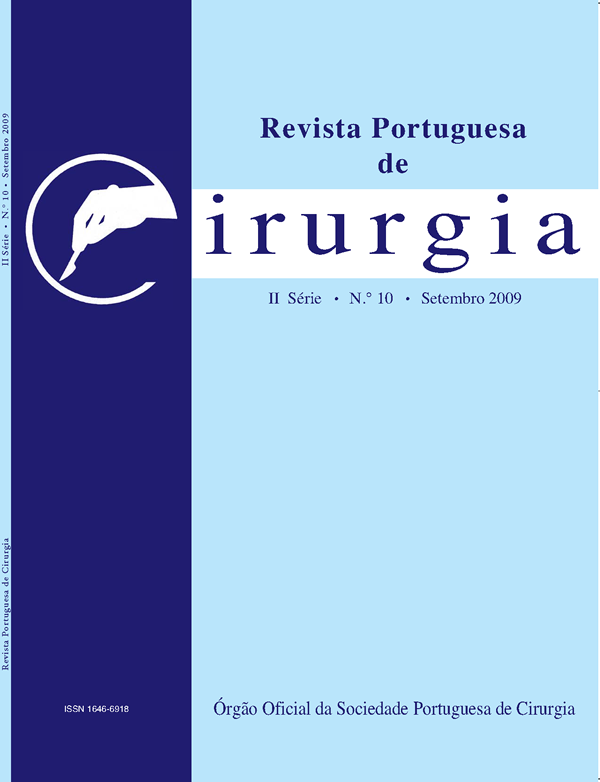Meglumine and Small Bowel occlusion; an effective association
Abstract
Small bowel oclussion approach has been modified over time towards a initial conservative treatment; to this attitude, distinc- tion between full and partial occlusion is fundamental. Water soluble contrasts can meet this purpose, but we can not exclude some therapeutic effect of them. The authors (AA) present a study about the use of meglumine to define small bowel occlusion and therapeutic management.
Methods – Prospective study conducted on 93 patients admitted at the emergency room in a period of 18 months, with the diagnosis of small bowel occlusion with no indications for urgent surgery, whom received water soluble contrast meglumine. Partial small bowel occlusion was considered if oral contrast was visualized in the right colon on abdominal plain radiographie conducted 8 -12 hours after contrast ingestion.
Results – 82 patients were classified as having partial occlusion, being conservative treatment effective in 81, with a median length of hospital stay of 2 days. The other patient need surgical treatment because presented worsening after initial recovery. The remainder 11 cases were classified has having total occlusion and all of them needed surgical therapy.
Conclusion – The AA concluded, according with the most recent literature, that meglumine is useful to predict success of conservative treatment when applied to patients with small bowel occlusion with out need for urgent surgery, as it can classify occlusion in partial or complete.
Keywords: small bowel obstruction; classification; meglumine; therapeutic management
Downloads
Downloads
Published
Issue
Section
License
Para permitir ao editor a disseminação do trabalho do(s) autor(es) na sua máxima extensão, o(s) autor(es) deverá(ão) assinar uma Declaração de Cedência dos Direitos de Propriedade (Copyright). O acordo de transferência, (Transfer Agreement), transfere a propriedade do artigo do(s) autor(es) para a Sociedade Portuguesa de Cirurgia.
Se o artigo contiver extractos (incluindo ilustrações) de, ou for baseado no todo ou em parte em outros trabalhos com copyright (incluindo, para evitar dúvidas, material de fontes online ou de intranet), o(s) autor(es) tem(êm) de obter, dos proprietários dos respectivos copyrights, autorização escrita para reprodução desses extractos do(s) artigo(s) em todos os territórios e edições e em todos os meios de expressão e línguas. Todas os formulários de autorização devem ser fornecidos aos editores quando da entrega do artigo.



